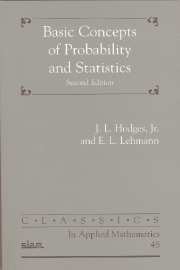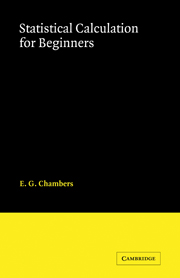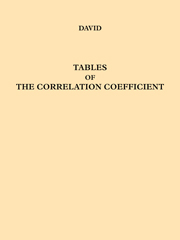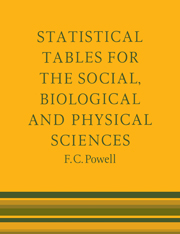Basic Concepts of Probability and Statistics
Basic Concepts of Probability and Statistics provides a mathematically rigorous introduction to the fundamental ideas of modern statistics for readers without a calculus background. It is the only book at this level to introduce readers to modern concepts of hypothesis testing and estimation, covering basic concepts of finite, discrete models of probability and elementary statistical methods. Although published in 1970, it maintains a modern outlook, especially with such topics as models and model building, simple random and stratified survey sampling, experimental design, and nonparametric tests and its discussion of power. The book covers a wide range of applications in manufacturing, biology, and social science, including demographics, political science, and sociology. Each section offers extensive problem sets, with selected answers provided. Among the topics covered that readers may not expect in an elementary text are optimal design and a statement and proof of the fundamental (Neyman-Pearson) lemma for hypothesis testing.
- Intended for high school and undergraduate students as well as others who want a mathematically rigorous introduction to probability and statistics that does not require calculus
- Well suited to supplement high school and college courses on discrete mathematics and will appeal especially to instructors teaching statistics courses within mathematics departments
- Unexpected topics covered are optimal design and a statement and proof of the fundamental (Neyman-Pearson) lemma for hypothesis testing; each section offers extensive problem sets
Product details
No date availablePaperback
9780898715750
460 pages
228 × 151 × 22 mm
0.637kg
Table of Contents
- Preface
- Part I. Probability:
- 1. Probability models
- 2. Sampling
- 3. Product models
- 4. Conditional probability
- 5. Random variables
- 6. Special distributions
- 7. Multivariate distributions
- Part II. Statistics. Introduction to Statistics:
- 8. Estimation
- 9. Estimation in measurement and sampling models
- 10. Optimum methods of estimation
- 11. Tests of significance
- 12. Tests for comparative experiments
- 13. Concept of power
- Tables
- Selected answers to problems
- Index
- Example index.





